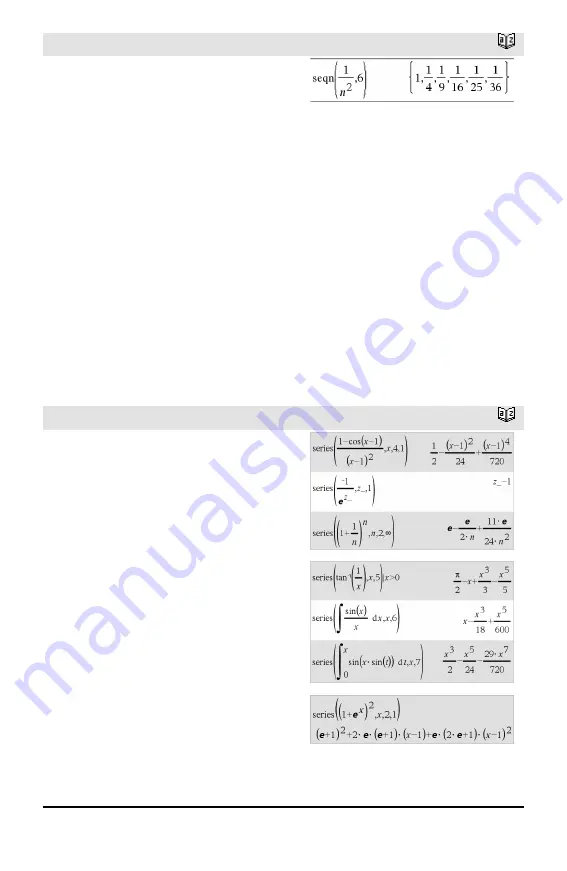
seqn()
Catalog >
Generates a list of terms for a sequence
u
(
n
)=
Expr
(
u
,
n
) as follows: Increments
n
from 1 through
nMax
by 1, evaluates
u
(
n
)
for corresponding values of
n
using the
Expr
(
u
,
n
) formula and
ListOfInitTerms
,
and returns the results as a list.
seqn(
Expr
(
n
[
,
nMax
[
,
CeilingValue
]]
)
⇒
list
Generates a list of terms for a non-
recursive sequence
u
(
n
)=
Expr
(
n
) as
follows: Increments
n
from 1 through
nMax
by 1, evaluates
u
(
n
) for corresponding
values of
n
using the
Expr
(
n
) formula, and
returns the results as a list.
If
nMax
is missing,
nMax
is set to 2500
If
nMax
=0,
nMax
is set to 2500
Note: seqn()
calls
seqGen( )
with
n0
=
1
and
nstep
=
1
series()
Catalog >
series(
Expr1
,
Var
,
Order
[
,
Point
]
)
⇒
expression
series(
Expr1
,
Var
,
Order
[
,
Point
]
) |
Var
>
Point
⇒
expression
series(
Expr1
,
Var
,
Order
[
,
Point
]
) |
Var
<
Point
⇒
expression
Returns a generalized truncated power
series representation of
Expr1
expanded
about
Point
through degree
Order
.
Order
can be any rational number. The resulting
powers of (
Var
−
Point
) can include
negative and/or fractional exponents. The
coefficients of these powers can include
logarithms of (
Var
−
Point
) and other
functions of
Var
that are dominated by all
powers of (
Var
−
Point
) having the same
exponent sign.
Alphabetical Listing
157
Summary of Contents for TI-Nspire CAS
Page 4: ...4 Service and Warranty Information 249 Index 251 ...
Page 248: ...248 ...
Page 250: ...250 ...
















































